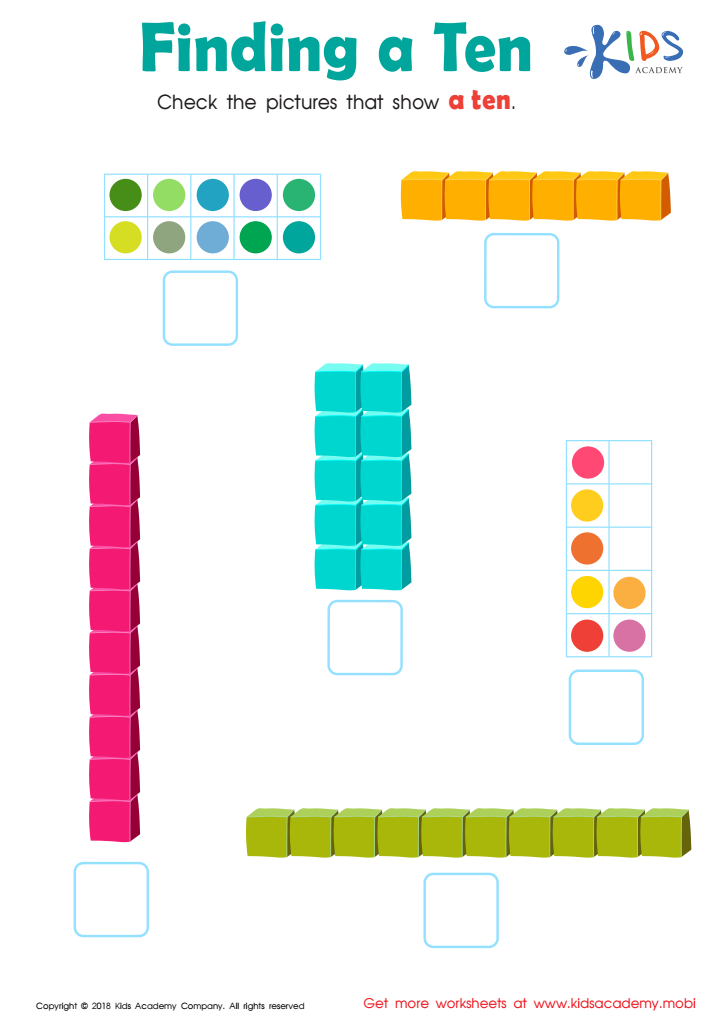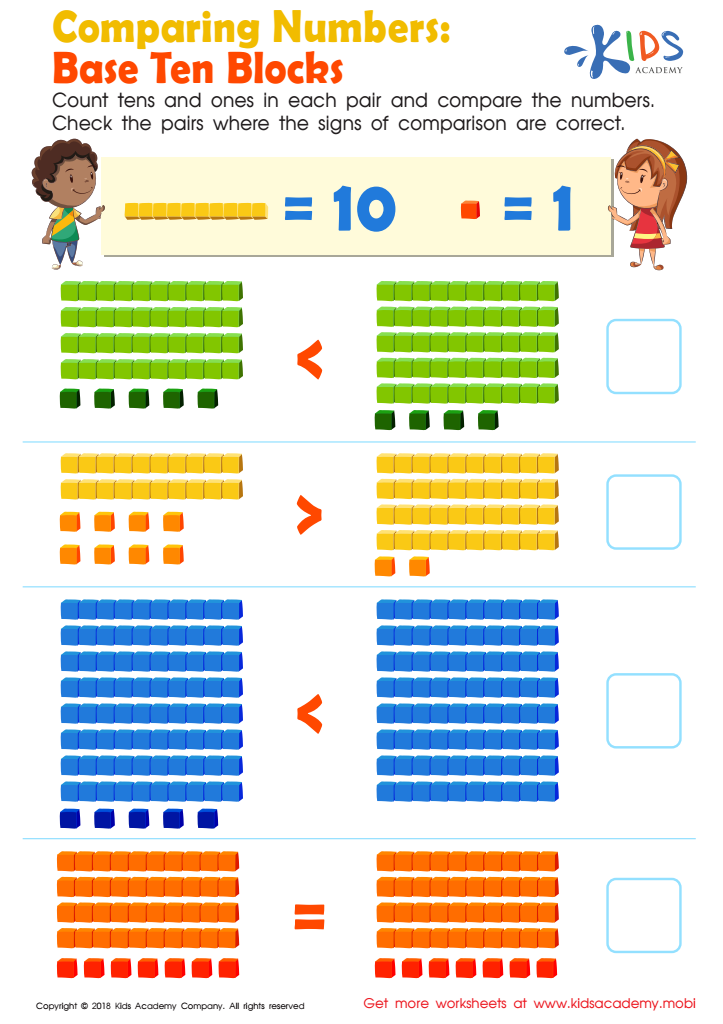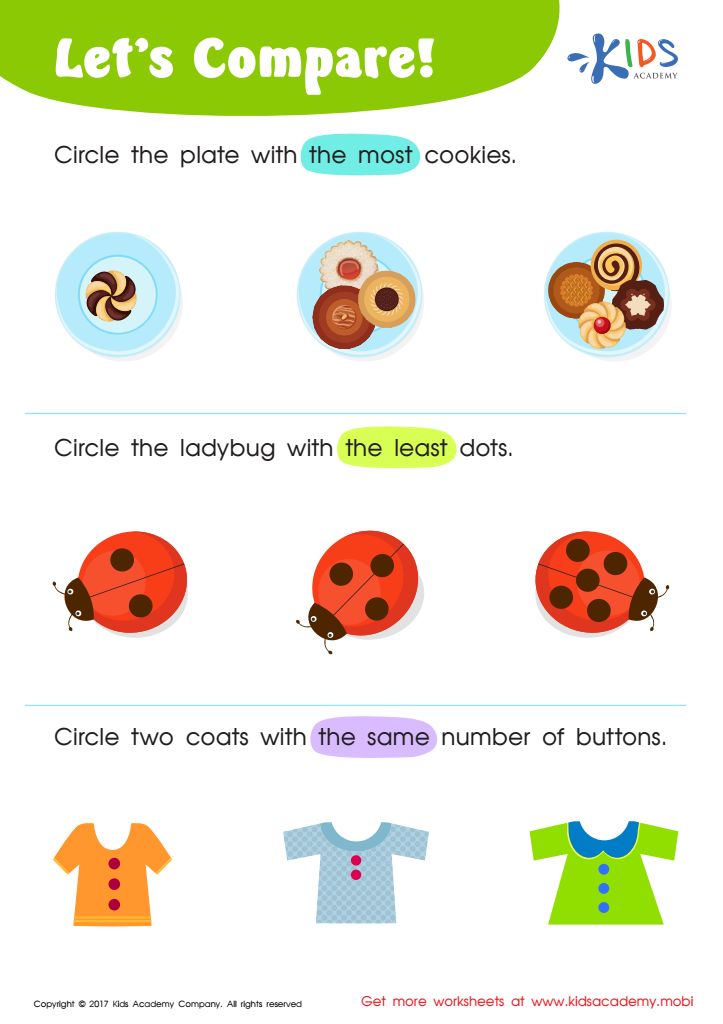Developing math skills Normal Worksheets for 6-Year-Olds
3 filtered results
-
From - To
Unlock your child's potential with our "Developing Math Skills Normal Worksheets for 6-Year-Olds." This collection features engaging, age-appropriate activities designed to enhance math understanding through hands-on practice. From number recognition to simple addition and subtraction, our worksheets utilize fun themes to captivate young learners' attention. Each printable resource promotes critical thinking and problem-solving skills while aligning with early educational standards. Perfect for at-home learning or classroom use, these worksheets support your child's journey in math confidence and competence. Watch as they explore numbers with excitement and joy, making math an enjoyable experience that lays a strong foundation for future learning!


Finding a Ten Worksheet


Comparing Numbers: Base Ten Blocks Worksheet


Matching: Classifying Toys by Size Worksheet
Developing math skills in 6-year-olds is essential for several reasons. At this age, children are at a critical stage of cognitive development, where foundational math concepts can significantly shape their future academic success. Mastering basic skills such as counting, simple addition and subtraction, and recognizing patterns fosters problem-solving abilities and logical thinking, which are crucial not just in math, but in everyday life.
Parents and teachers play a pivotal role in nurturing these skills. Early math proficiency contributes to overall confidence and encourages a positive attitude towards learning. When children perceive math as enjoyable and manageable, they are more likely to engage actively in their education. Moreover, these early skills often correlate with advanced math performance in later years, helping to close achievement gaps before they widen.
Additionally, mathematical fluency supports other subjects, such as science and even reading comprehension, by promoting analytical thinking. By investing time and effort into developing math skills from an early age, parents and teachers not only prepare children for academic challenges ahead but also empower them to navigate a world increasingly driven by technology and quantitative reasoning. Thus, prioritizing math skill development is an investment in children’s lifelong learning and success.
 Assign to My Students
Assign to My Students





















